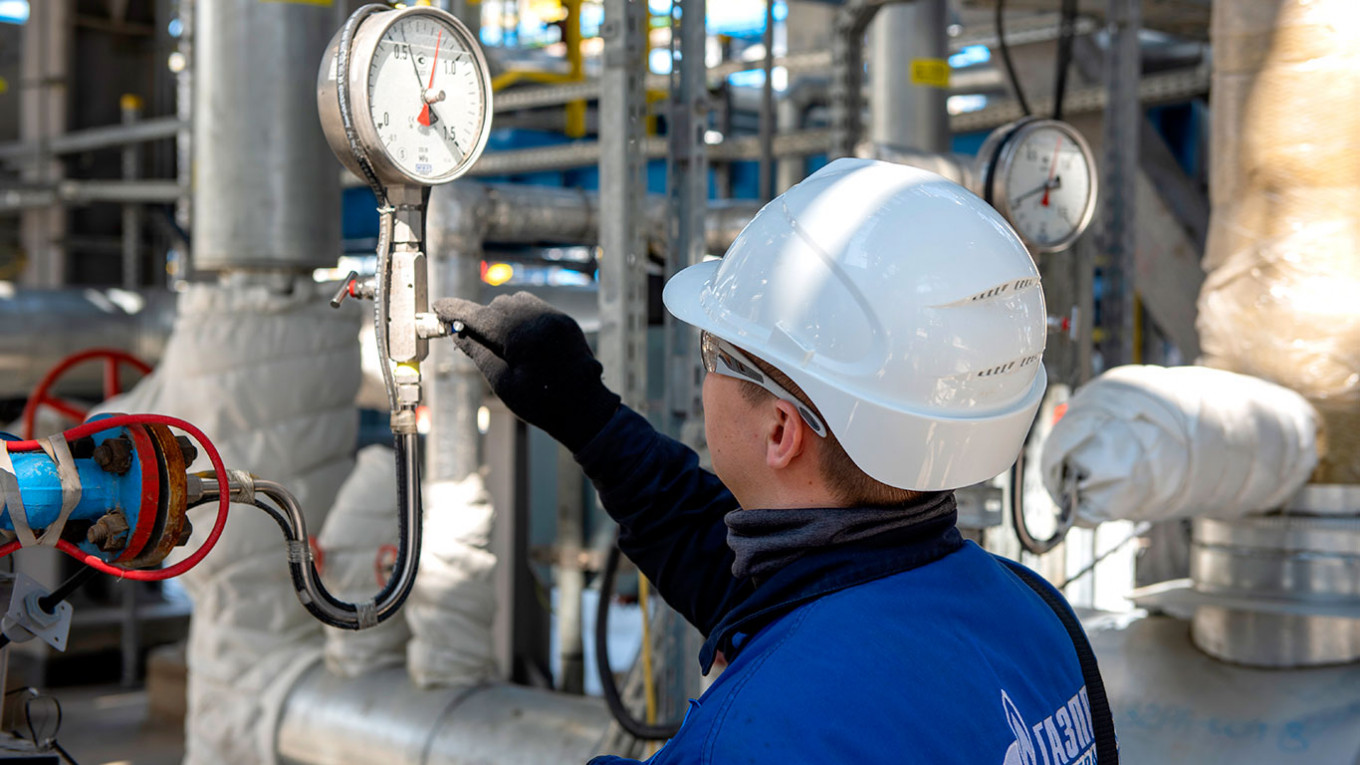Russia’s energy giant, Gazprom, is poised to increase gas deliveries to Central Asian nations as the company aims to sign fifteen-year contracts with Kazakhstan, Kyrgyzstan, and Uzbekistan by mid-2024.
The announcement came from Alexey Miller, Chairman of the Gazprom Management Committee, during the company’s final pre-New Year conference.
Miller revealed that mid-term fifteen-year contracts, negotiated with partners in Kyrgyzstan, Kazakhstan, and Uzbekistan, are scheduled to be formalized at the St. Petersburg International Economic Forum in the middle of the next year. Stable and reliable gas supplies under these contracts are expected to commence on November 1, 2025.
Currently, Gazprom is already exceeding its daily contract commitments for gas supplies to Uzbekistan.
“We have also commenced the second stage of increasing gas transport capacities in the Central Asia – Center (CAC) corridor with a very tight deadline,” Miller said. “The task is set again for an extremely short period - we are to start supplying much higher volumes by November 1, 2025.”
The Central Asia-Center gas transport system, comprising four separate lines traversing Kazakhstan and extending into Uzbekistan, Turkmenistan, Tajikistan, and Kyrgyzstan, has undergone crucial modifications. Gazprom successfully reversed the operation of the system during three months, ensuring more reliable gas supplies to Central Asian countries, according to Miller.
Gazprom has recently initiated gas supplies via Kazakhstan to Uzbekistan under a short-term contract, delivering approximately 2.8 billion cubic meters of gas annually to the largest Central Asian nation by population in the former Soviet region.
This move comes as Gazprom, facing challenges in the European market due to halted flows via the Nord Stream and Yamal-Europe pipelines, strategically turns to Central Asian markets. The company, with reported spare production capacity of 100 billion cubic meters of gas per year, aims to strengthen its position in the region.
Additionally, Gazprom is actively exploring the feasibility of delivering Russian gas to the eastern and northeastern regions of Kazakhstan. Miller earlier stated that a key feasibility study is expected to be completed within a month, shedding light on the technical viability and economic efficiency of the project. Astana has shown interest in a potential long-term deal with Gazprom to supply Russian gas to these remote regions.
The oil and gas industries are the main pillars for Moscow and Astana, as both Russia and Kazakhstan are flush with hydrocarbons. The two post-Soviet countries have maintained strong partnerships in the energy sector through already existing close economic, technological, and transportation initiatives.
The use of gas as a cleaner type of fuel is among the most important directions set by Kazakhstan in protecting the environment, the process of transitioning to carbon neutrality, and achieving a zero balance of emissions. To increase the investment attractiveness of the gas industry in Kazakhstan, a number of systemic measures are being taken, and new market approaches to gas pricing have been identified.







 Azerbaijan and Armenia started the process of demarcation of their border on Tuesday, with the installation of the first border markers based on ge...
Azerbaijan and Armenia started the process of demarcation of their border on Tuesday, with the installation of the first border markers based on ge...
 President Aliyev emphasized the critical role of the North-South Transport Corridor in fostering transport cooperation between Azerbaijan and Russi...
President Aliyev emphasized the critical role of the North-South Transport Corridor in fostering transport cooperation between Azerbaijan and Russi...
 Iran and Pakistan have signed eight cooperation documents in various fields, and agreed to strengthen ties to fight terrorism in the region.
Iran and Pakistan have signed eight cooperation documents in various fields, and agreed to strengthen ties to fight terrorism in the region.
 As the conflict between Ukraine and Russia escalates, the strategic importance of Kharkiv, Ukraine's second-largest city, has come sharply into focus.
As the conflict between Ukraine and Russia escalates, the strategic importance of Kharkiv, Ukraine's second-largest city, has come sharply into focus.
 Iranian President Ebrahim Raisi expressed Tehran’s readiness to participate in significant development projects in Sri Lanka during the inauguratio...
Iranian President Ebrahim Raisi expressed Tehran’s readiness to participate in significant development projects in Sri Lanka during the inauguratio...



